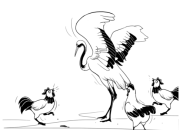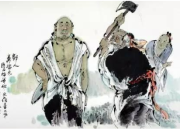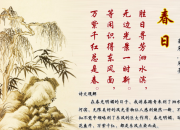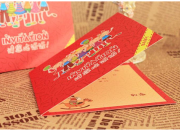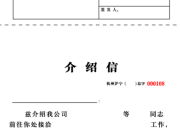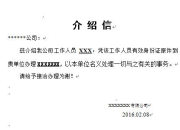高二英语情态动词语法讲解
时间:2021-08-31情态动词顾名思义就是表示情感和态度的词,常见的有:can (could); may (might); must; have to; shall (should); will (would); need; dare (dared); ought to; 情态动词没有人称和数的变化,不能单独使用,它与其后的动词原形合成谓语结构。它们的用法如下:
一. can和could 的用法
1. 表示能力或客观的可能性,还可以表示请求和允许。如:
Can you finish this work tonight? Man cannot live without air.
Can I go now? Yes, you can.
注意:
1) could表示语气较委婉的请求,主要用语疑问句,(用于此意义时不用在肯定句)答语用can。
Could I come to see you tomorrow?
Yes, you can. (不能用could). (否定句常用No, Im afraid not.)
2) can表示能力时,还可以用 be able to 代替,例如:
Ill be able to come this afternoon.
但当我们要表示某件事已成时,须用 was (were) able to不能用could,例如:
He was able to go to the party yesterday evening and he enjoyed himself very much.
2. 表示惊异、怀疑、不相信的态度。(主要用在否定句、疑问句和感叹句中)
Can this be true? How can you say like that? This cannot be done by him.
3. can (could) + have + done 的疑问或否定形式表示对过去发生的行为怀疑或不肯定。
He cannot have been to that town. Can he have got the book?
二. may 和might 的用法
1. 表示许可,表示请求、允许时,might 比may 的语气更加委婉一些,否定回答时可用cant 或mustnt, 表示不可以、禁止、阻止之意。 例如:
Might I use your pen? No, you mustnt.
May I take this book out? Yes, you can ( No, you cant/ mustnt.)
用May I 征询对方许可在文体上较正式,在口气上比较客气,在日常口语中,用Can I 征询对方意见在现代口语中更为常见。
2. 用于表示祝愿的句子中。例如:
May you success! May you be happy! May you have a good journey!
3. 表示推测、可能(疑问句中不用于此意)
He may be very busy now. (此句中用might 语气较弱)
4. May (Might) + have + done 表示对过去发生的行为的推测。例如:
He may not have finished the work. (此句中用might 语气较更弱)
三. must 和 have to 的用法
1. 表示必须、必要。
You must come on time.
当must 引出的问句时, 若是否定的回答,不能用mustnt,而用neednt或dont have to.
Must we hand in our exercise our books today?
Yes, you must. (No, neednt/you dont have to.)
2. must be + 表语的结构表示推测,它的否定或疑问形式用can 代替must。如:
He must be our new teacher.
Can he be our new teacher? He cant be our new teacher.
※ 附加疑问句要和谓语动词实际时态一致。如:
He must be our new teacher, isnt he?
3. must + have +done 的结构常用在肯定句中,表示对过去或完成的情况推测,它的否定或疑问形式也用can代替must.
He must have finished his work.
※ 附加疑问句也要和谓语动词实际时态一致。如:
He must have finished his work already, hasnt he?
He must have finished his work at four yesterday, didnt he?
4. have to 的含义与must相似,两者往往可以互换使用,但have to有各种形式,随have的变化而定,must 与have to有下列几点不同:
1) must表示的是说话人的主观看法,而have to则往往强调客观需要,例如:
The play is not interesting. I really must go now.
I had to work when I was your age.
2) 两者的否定意义大不相同。例如:
You mustnt go. (你不可以去) You dont have to go. (你不必去)
3) 询问对方的意见时应用must。
Must I hand in the exercise book before eight?
4) must 表示偏偏
Must it rain today? (今天怎么偏偏下雨呢?)
四. dare 和need的用法
1. need表示需要,必须,作情态动词时,仅用于疑问句和否定句,在肯定句中一般用must, have to, ought to,或should代替。例如:
You neednt come so early.
Need I clean all the room right now? Yes, you must. ( No, you neednt.)
注意:neednt + have +done表示本来不必要做的事而实际上做了,例如:
You neednt have waited for me. 你本来没有必要等我的。
2. dare作情态动词时,主要用于疑问句,否定句和条件句中,一般不用于肯定句,例如:
How dare you take my book without permission?
He dare not speak English before such a crowd, dare he?
3. need和dare作情态动词时,过去时形式与现在形式相同(美国英语中可用dared)。
He was so angry that no one dared say a word.
They said that he neednt stay there any longer.
4. need和dare常用实义动词,有时态、人称和数的变化。不同的是dare作实义动词时,在肯定句中通常接带to的不定式,在疑问句和否定句中,dare之后的不定式可带to或不带to。例如:
He needs to finish the work before nightfall.
I dare to swim across this river.
He does not dare (to) answer the teachers question.
Dont you dare (to) touch it?
I wonder he dared say that.
5. I dare say是习惯用语,常可写为I daresay,用法有以下几种:
1) 敢于说,通常接that或what引导的名词性从句。
I dare say that he has stolen Toms football. I dare say what I think.
2) 我想;恐怕;大概;也许是,通常作插入语用,使句子委婉。
I dare say there is something wrong with the machines.
Youre tired, I dare say.
You, I dare say, think otherwise.
3) I dare say往往也作为反语使用。
Oh, you mean to defeat our football team? I dare say you will. (噢!你们想赢我们的足球队?也许可以吧。)
五. shall和should的用法。
1. shall用于第一人称疑问句。表示征求对方意见。
What shall we do this evening?
Shall I open the window?
2. shall 用语第三人称疑问句中,表示说话人征求对方的意见或向对方请示。
When shall he be able to leave the hospital?
3. shall用于第二、三人称的陈述句,表示说话人给对方的'命令、警告、允诺或威胁。
You shall fail if you dont work harder.
He shall have the book when I finish reading.
He shall be punished.
4. should表示劝告、建议、命令,其同义词是ought to,在疑问句中,通常用should代替ought to.
You should go to class right away.
Should I open the window?
5. should + have +done应该做的事实上没做;shouldnt have done不该做的事却已经做了,常含有责备的意思。
You should have started earlier this morning.
You shouldnt have treated her like that.
六. will和would的用法。
1. 用于疑问句表示请求、建议等,would比will的语气更加委婉。
Will you please give me a hand?
Would you mind my smoking here?
2. 表示意志、愿望和决心。
I will never do that again.
They asked us if we would do that again.
3. 用will be和will have done的结构表示推测,主要用于二、三人称,前者表示对目前的情况的推测,后者表示对已经完成的动作或事态的推测。
This will be the book you want.
He will have arrived by now.
4. would可表示过去反复发生的动作或某种倾向,表示过去习惯时比used to正式,同时它没有现在已无此习惯的含义。
I would visit him during my vacation.
The patient would not recover.
5. 表示料想或猜想。
He would be your new teacher.
He would not come any more.
七. ought to的用法。
1. ought to表示应该时意义与should基本一致,但更侧重于一种义务或责任。
You ought to take care of him.
Parents ought to bring up their children.
2. 表示推测,注意与must表示推测时的区别。
He must be home by now.
He ought to be home by now.
This is where she must be.
This is where she ought to be.
3. ought to have done的用法与should have done的用法相同
注意:ought to在美国英语中,用于否定句和疑问句时,to可以省略。如:
Ought you smoke so much?
You oughtnt smoke so much.
八. used to; had better; would rather的用法。
1. used to表示过去习惯动作或状态,现在已经不存在,在间接引语中,其形式可不变。如:He told us he used to play football when he was young.
1) 在疑问句、否定句或否定疑问句中,可有两种形式。
疑问句:Did you used to/Used you to go to the same school as your brother?
否定句:I usednt to/didnt use to go there. (usednt 也可为usent, 发音不变)。
否定句疑问句:Usednt you to/Didnt you used to be interested in the play?
2) 在附加疑问句和简略答语中,也可有两种形式。
She used to be very fat, didnt/usednt she?
Did you used to/Used you to play chess? Yes, I did/used to.
2. had better意为最好,后接不带to不定式。
We had better go now.
Hadnt we better stop now?
I think Id better be going.
You had better have done that.
3. would rather意为宁愿,表示选择,后接不带to的不定式。
Id rather not say anything.
Would you rather work on a farm?
Wouldnt you rather stay here? No, I would not. Id rather go there.
由于would rather表选择,故后面可接than.
I would rather watch TV than go to see than go to see the film.
I would rather throw it away than you should get it.(若than后面接从句常用should do)
Id rather you didnt talk about this to anyone.
※ would rather 还可写为would sooner/would as soon.
【高二英语情态动词语法讲解】相关文章:
1.连词语法讲解

